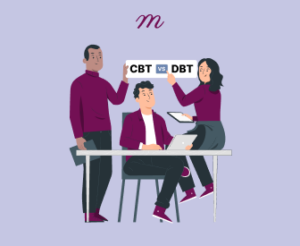Mental health clinicians in Canada are responsible for handling sensitive information about their clients. It is essential to understand the legal and ethical implications of data protection in Canada to ensure that you are complying with the law and maintaining the trust of your clients. In this article, we will discuss everything about PIPEDA and also compare it with HIPAA and PHIPA. So you can easily understand each of their rules and regulations and the similarities and differences between them, let’s get started.
So What is PIPEDA?
The Personal Information Protection and Electronic Documents Act (PIPEDA) is basically a federal privacy law in Canada that sets out rules for how private sector organizations, including health care providers and mental health clinicians, collect, use, and disclose personal information of their customers, patients, or clients. It applies to all entities that deal with people’s personal data in the course of commercial activities, including non-profit organizations. PIPEDA has established clear-cut guidelines for obtaining consent for the collection, utilization, and disclosure of personal information, as well as rules for the protection of private information.
Personal Information that comes under PIPEDA
The personal information can be any information about an identifiable individual, including:
- Name
- Address
- Educational background
- Phone number
- Email address
- Age
- Gender
- Race
- Marital status
- Religion
- Health information
- Financial information
Consent under PIPEDA
According to PIPEDA, mental health clinicians must obtain consent for the utilization and disclosure of someone’s personal information. The consent should be knowledgeable, which means that individuals must be clearly informed about the purpose of the use or revelation of their private info, and must understand the implications of providing it. Secondly, consent must also have to be voluntary, which means individuals must be able to choose whether or not they want to provide them with their personal information.
Under PIPEDA, it’s compulsory for all healthcare organizations to obtain explicit consent for the collection, disclosure, and use of sensitive personal information about people, for example, someone’s mental health records.
Protecting Personal Information under PIPEDA
PIPEDA requires all clinicians and organizations that collect personal data to protect personal information by implementing security safeguards to protect against the loss, theft, and unauthorized access, use, or disclosure. Security safeguards may include physical, organizational, and technological measures. They must also establish procedures for responding to privacy breaches and must notify the affected individuals and the Privacy Commissioner of Canada if any sort of privacy breach occurs.
HIPAA Vs PIPEDA
Both HIPAA and PIPEDA are two significant initiatives that mandate mental health clinicians and other organizations to exercise greater stewardship of consumer medical information. These initiatives aim to protect the sensitive personal information of people who entrust their medical information to health organizations in the United States and Canada. HIPAA stands for the Health Insurance Portability and Accountability Act, while PIPEDA is the Personal Information Protection and Electronic Documents Act. Both of them have similarities in restricting the use of healthcare data, however, there also exists some critical differences clinicians must understand to ensure compliance and reduce cybersecurity risks.
Let’s discuss both their similarities and differences in detail.
Similarities
PIPEDA and HIPAA share lots of similarities, as they both are privacy laws aimed at protecting personal health information. Here are some ways in which they are alike:
Both apply to personal health information
PIPEDA and HIPAA both cover the personal health information of citizens. HIPAA applies to protected health information (PHI) in the United States, while PIPEDA applies to personal information, including health information, in Canada.
Consent Requirement
Under both laws, mental health clinicians must obtain the consent of the individuals before collecting, using, or disclosing their personal health information. HIPAA dictates its covered entities to obtain written consent from patients or clients before disclosing or using their PHI, except for a few permitted purposes.
PIPEDA also requires clinicians to obtain meaningful consent from individuals regarding their personal information. This means that the individuals have to be informed about the purposes for which their information is being collected and how it will be used, and they must have the option to opt-out or withdraw their consent at any time as a right.
Implementation of security measures
HIPAA and PIPEDA are very very strict when it comes to the implementation of security measures for organizations and clinicians. They both require them to implement all the required measures to protect personal health information from unauthorized disclosure, use, and access at all costs.
Notification policy
HIPAA requires its covered entities, including mental health clinicians, to notify affected individuals, the Department of Health and Human Services (HHS), and in some cases, the media, in the event of a breach of PHI that affects more than 500 individuals.
Similarly, PIPEDA also wants its entities and clinicians to notify affected individuals and the Office of the Privacy Commissioner of Canada (OPC) in the event of a breach of personal information that poses a significant risk of harm to individuals.
Both laws provide individuals with rights over their information
Both these laws provide clients with the right to access and request corrections to their personal and private health data and mental health records etc.
Penalties and Fines for Non-compliance
They both impose penalties on organizations and clinicians that fail to comply with their provisions. The penalties can be severe and can include fines and legal action. HIPAA violations may result in significant financial penalties, ranging from $100 to $50,000 per violation, up to a maximum of $1.5 million per year. PIPEDA violations can result in fines of up to $100,000 for individuals and $10 million for organizations, as well as reputational damage and loss of business.
Difference
Here are some of the major differences between HIPAA and PIPEDA:
Jurisdiction:
The major difference between both of them is that HIPAA applies to organizations and covered entities in the United States, such as mental healthcare providers, health insurance companies, and their business associates. PIPEDA, however, applies to all private-sector organizations in Canada that collect, use, or disclose personal information in the course of commercial activities.
Scope:
PIPEDA and HIPAA both aim to protect personal medical information, but HIPAA only covers protected health information (PHI), which includes medical records, treatments, payments, and health conditions of patients. PIPEDA covers a broader range of personal information, including PHI, financial information, and any other information that is personally identifiable.
PIPEDA VS PHIPA
PHIPA (Personal Health Information Protection Act, 2004), is a provincial law in Ontario that specifically sets out the rules for health information custodians when it comes to the collection, use, and disclosure of personal health information. One of the main differences between PIPEDA and PHIPA is that PIPEDA applies to entities engaged in commercial activities, while PHIPA applies to health information custodians regardless of whether their activities are commercial. However, if provincial legislation is considered “substantially similar” to PIPEDA, organizations and clinicians in that province can be exempted from PIPEDA’s rules.
In 2002, Industry Canada established criteria for determining whether provincial or territorial legislation is “substantially similar” to PIPEDA. Under this policy, legislation is considered substantially similar if it incorporates the ten principles in the National Standard of Canada’s Model Code for the Protection of Personal Information, provides for independent and effective oversight and redress mechanisms, and restricts the collection, use, and disclosure of personal information to appropriate or legitimate purposes.
Ontario’s PHIPA has been declared “substantially similar” to PIPEDA, which means that health information custodians in Ontario are exempt from PIPEDA’s rules to the extent that they collect, use, and disclose personal information within the province. This means that health information custodians in Ontario must comply with PHIPA when it comes to the collection, use, and revelation of personal health information.
The exemption order benefits health information custodians by simplifying their privacy regulations. Without the designation, both PIPEDA and PHIPA would apply to a health information custodian’s collection, use, and revelation of personal information in Ontario, which would impose a complicated dual regime of privacy regulations on the affected parts of the health sector. By exempting health information custodians from PIPEDA, PHIPA provides a consistent framework for the protection of personal health information in Ontario.
It is very important to note that the exemption order only applies to health information custodians and their agents. Researchers, entities prescribed under s. 45 of PHIPA, and persons prescribed under s. 39(1)(c) of PHIPA who are not health information custodians or agents of such custodians will still be required to comply with both PIPEDA and PHIPA if both laws apply to them.
The Bottom Line
Summing up the story, PIPEDA is a major data privacy regulation in the mental healthcare industry in Canada and shares some similarities and differences with HIPAA. HIPAA is a U.S. law that applies to all healthcare providers, including mental health clinicians, health plans, etc., while PIPEDA is a Canadian law that applies to all private sector establishments, also including mental healthcare providers. Similar to PIDEDA, PHIPA is also a privacy law in Ontario, Canada, that specifically applies to the health sector. While it has some similarities to PIPEDA, it includes additional provisions specific to the health sector. It is important for mental health clinicians in Canada to understand PIPEDA and comply with the relevant data privacy regulations to protect patients’ personal health information, avoid penalties, and provide long-term care to their clients.
References:
- https://www.priv.gc.ca/en/privacy-topics/privacy-laws-in-canada/the-personal-information-protection-and-electronic-documents-act-pipeda/
- https://www.health.gov.on.ca/english/providers/project/priv_legislation/phipa_pipeda_qa.html
- https://www.accountablehq.com/post/cost-of-noncompliance
Why other mental health professionals love Mentalyc

“If I were recommending this software to a colleague, I would tell them that it is the best thing that they could do for their practice.”
Licensed Professional Counselor

“Do yourself a favor, make your life easier. I found Mentalyc to be one of the best tools that I’ve ever used.”
Licensed Marriage and Family Therapist

“For anyone hesitant: this is a lifesaver. It will change your life, and you have more time to be present with your patients.”
Licensed Clinical Social Worker

“It immediately changed my quality of life, personally and professionally.”
Owner/Independently Licensed Marriage & Family Therapist (LMFT)






